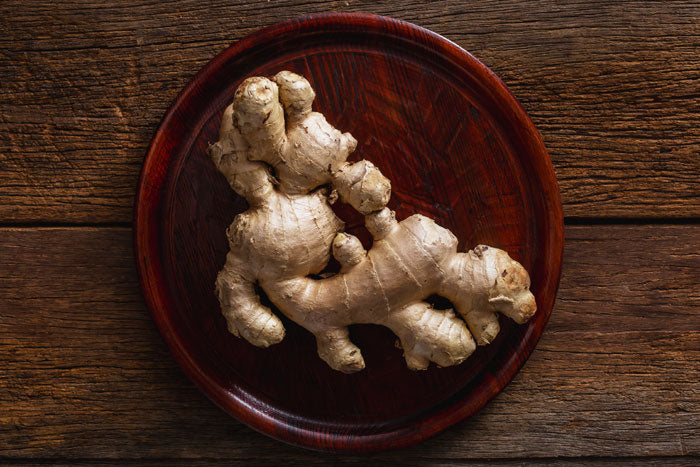
Essential Oils and Irritable Bowel Syndrome: How to Soothe It?
Irritable bowel syndrome: definition, causes and symptoms
The problem with irritable bowel syndrome is that it is still poorly understood today and that it takes different forms depending on the person affected .
Treating it and relieving the discomfort that results from it is therefore not easy. In most cases, it manifests itself through abdominal pain, spasms, burning or even feelings of heaviness and discomfort, but above all a disturbance of transit which can be either accelerated or slowed down , or even both depending on the case.
There is then an alternation between constipation and false diarrhea.
It also almost systematically causes fatigue and sleep disturbances.
Very often, people who suffer from it have become accustomed to their symptoms and do not suspect the existence of this pathology which is in reality the origin of their problem. They therefore never seek medical help or only seek it late.
The true causes of this digestive condition are currently unclear. All we know is that it primarily affects women and sometimes children or young adults.
Hormonal factors could be one of the causes, just as a proven intolerance to gluten or other allergenic foods could be triggers for attacks.
Also, the emotional component must also be taken into account because stress , whether or not it is partly responsible for this syndrome, actively participates in it. Finally, despite its benign nature, it requires serious management in order not to let it become established permanently.
Relieving symptoms of irritable bowel syndrome: hygiene and dietary protocol
People suffering from irritable bowel syndrome are advised to implement certain measures to reduce their symptoms. These new habits will make their lives more pleasant and may even allow them to return to normal.
In terms of nutrition, you need:
- Check whether there is any specific food intolerance and, if necessary, completely eliminate the food in question;
- Limit at all costs foods responsible for intestinal fermentation such as cabbage, broccoli, gluten, legumes, etc.;
- Reduce intake of high-fiber foods , dairy products , alcohol, tobacco, coffee ;
- Avoid processed industrial foods as well as cooked dishes rich in fat ;
- Use and abuse aromatic herbs that aid digestion such as coriander , mint, tarragon and basil ;
- Make sure you stay well hydrated by drinking plenty of good quality, still water at room temperature.
Regarding food supplements, you can rely on:
Prebiotics and probiotics
It is important to know that the human digestive tract is colonized by hundreds of billions of good bacteria as well as yeasts that are beneficial to our health.
Belonging to the family of lactic ferments, their role is to protect our body from possible pathogenic agents and to preserve the efficiency of digestion . And it is within our intestinal microbiota that all these living microorganisms, called probiotics, are concentrated .
However, when transit is accelerated, the contractions of the intestine are too rapid and the water does not have time to be assimilated, which causes very frequent stools, or even diarrhea.
Conversely, when transit is too slow, the food bolus becomes dehydrated and this causes constipation. It is therefore essential to maintain the balance of your intestinal flora to soothe digestive problems linked to IBS (irritable bowel syndrome).

Glutamine
Glutamine is an amino acid whose fundamental role is to maintain the integrity of the intestinal wall and prevent it from becoming porous . Glutamine can help fight IBS because it is used by intestinal tissues as a fuel source to function properly.
Aromatherapy for Irritable Bowel Syndrome: Which Essential Oils Should You Choose?
Essential oils effective against spasms, pain, abdominal cramps and heartburn
- Tarragon essential oil : relieves neuromuscular spasms in colitis and aids digestion;
- Tropical basil essential oil : (not to be confused with sweet basil linalool) is a powerful gastrointestinal antispasmodic, capable of stimulating digestion and relieving bloating and flatulence. Its soothing action combats stress, particularly that of the digestive system.
- Lavender essential oil : acts against gastric acidity and is a powerful analgesic and antispasmodic with relaxing properties.

Essential oils that act on inflammation
Lemongrass essential oil : is rich in molecules that are not only anti-inflammatory but also antifungal and regulate the autonomic nervous system. It therefore helps reduce inflammation of the digestive mucosa;
Roman chamomile essential oil : is particularly indicated in inflammatory conditions of irritable bowel syndrome due to its anti-inflammatory, pain-relieving , analgesic, intestinal antiparasitic, antispasmodic and anti-stress properties.
Essential oils that stop intestinal fermentation and regenerate the microbiota
Noble laurel essential oil : supports the autonomic nervous system, while oxygenating tissues and cleansing the digestive tract of germs responsible for fermentation or putrefaction. It helps restore a healthy microbiota;
Kaliteri oregano essential oil : very rare, it has purifying and regenerative properties for intestinal flora.
Essential oils against disrupted transit (alternating between episodes of diarrhea and constipation)
Ginger essential oil : relieves colic and diarrhea.

How is CBD helpful for people with irritable bowel syndrome?
Although the potential causes of irritable bowel syndrome remain unknown, the main trigger appears to be the disruption of the internal balance of the digestive tract between digestion, assimilation, immune defenses and excretions.
According to clinical studies and trials, CBD can help address these types of issues because it's capable of balancing various parts of the body. It improves intercellular communication through its action on the endocannabinoid system (ECS).
As part of a treatment for IBS, CBD can:
- Relieve anandamide deficiency;
- Suppress nausea and stimulate appetite;
- Reduce inflammation without the risk of psychoactive effects;
- Reduce appetite;
- Act as a reliable pain reliever thanks to its analgesic properties;
- Inhibit hyperactivity of the digestive muscles, reduce cramps and reduce the intensity of contractions.
Which CBD products can be used to provide rapid and lasting relief from symptoms?
Rich, concentrated, and high-quality CBD essential oil is the best alternative for combating the symptoms of irritable bowel syndrome . It's easy to take and accurately dosed. Plus, it has a long shelf life.
Dosages vary depending on the individual, their weight, and the disorder being addressed. In any case, it will take a good two to three weeks after starting regular use to see and feel the first positive effects on IBS.
Start with a low starting dose and increase as you get used to it and depending on how you feel.





